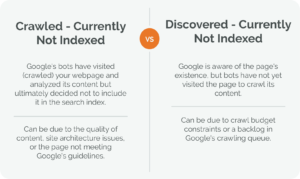Google Limits: Why “not” and Prepositions Pose Problems
Google has been known to struggle with specific types of search queries, particularly those involving the word “not” and various prepositions. These issues can impact the accuracy and relevance of search results. Here are the main reasons why these problems occur:
Complexity of Negative Queries:
When users include the word “not” in their queries, it adds a layer of complexity to the search. Google’s algorithms must not only find results that match the primary keywords but also exclude results that contain the negated term. This can lead to inconsistencies and less relevant results.
Challenges with Prepositions:
Prepositions often modify the meaning of a query significantly, making it challenging for search algorithms to understand the exact intent behind the search. For example, queries like “books on cooking” versus “books for cooking” might return different sets of results, even though they seem similar. This subtlety can confuse the search engine, resulting in less precise matches.
How Google Addresses These Issues:
- Continuous Algorithm Updates: Google continually updates its algorithms to improve its understanding of complex queries, including those with negations and prepositions. However, the nuances of human language make this an ongoing challenge.
- User Feedback and Machine Learning: By analyzing user behavior and feedback, Google’s machine learning systems gradually learn to better handle these tricky queries. Over time, this helps improve the accuracy of search results for such complex queries.
Practical Implications for Users:
- Refining Queries: Users can improve their search results by refining their queries. Instead of using complex phrases with “not” or prepositions, simpler and more direct language can yield better results.
- Alternative Search Strategies: Using synonyms or rephrasing queries can help Google understand the search intent more clearly.







